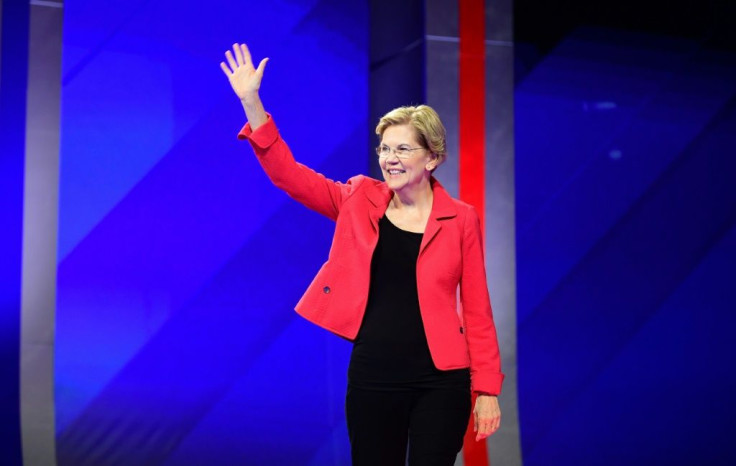Democrat Polls: After Texas Debate, Is Sen. Elizabeth Warren Gaining Momentum?

Two surveys after the Democratic primary debate on Thursday night show that Sen. Elizabeth Warren of Massachusetts could still be gaining momentum in the crowded race for the presidency.
A FiveThirtyEight/Ipsos poll showed that Warren's favorability after the debate went to 48% from 44.4% before it. Former Vice President Joe Biden went from 56.6% before the debate to 55.8% afterward.
The FiveThirtyEight poll showed a slight loss for Sen. Bernie Sanders of Vermont, as his favorability after the debate went from 41.8% to 40.5%. Former Texas Rep. Robert "Beto" O'Rourke, who had a breakout moment during the debate on the issue of gun control, rose from 15.6% to 16.1%.
Former Secretary of Housing and Urban Development Julian Castro, who was criticized by some pundits for his attacks on Biden, saw his approval among respondents drop to 7.2% from 7.9% before the debate.
Warren also is seeing rising support among young voters. A Chegg-College Pulse poll conducted immediately after the event showed 27% of college students thought that Warren won the debate, with 19% saying Sanders had the best performance.
Young voters could play a major role in the 2020 election, as 31% of voters aged 18 to 29 cast ballots in the 2018 midterms, with the youth vote going overwhelmingly Democratic.
The candidates have some more time to campaign before the next debate, which will take place in Ohio on Oct. 15, at the campus of Otterbein University in the suburbs of the state's capital, Columbus. Both the New York Times and CNN will co-host this debate.
Candidates will need to meet 2% in at least four polls approved by the Democratic National Committee in order to make it on stage. They will also need to have 130,000 unique voters, including at least 400 donors per state from a minimum of 20 states.
So far, all of the candidates who were at Thursday's debate have said that they have met the requirements to appear at the October debate, along with businessman and Trump impeachment activist Tom Steyer.
© Copyright IBTimes 2025. All rights reserved.





















